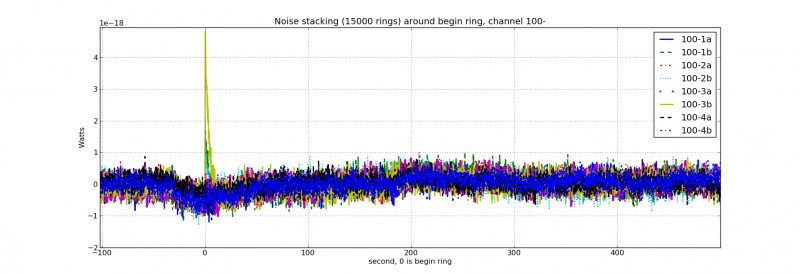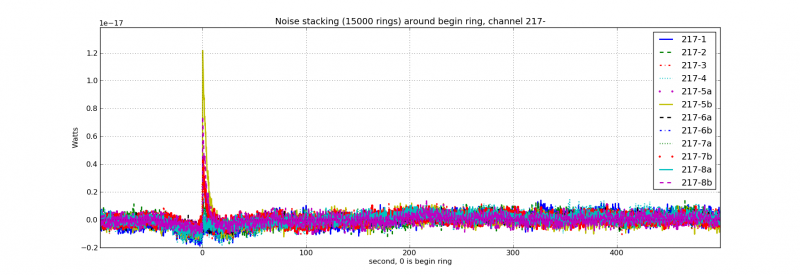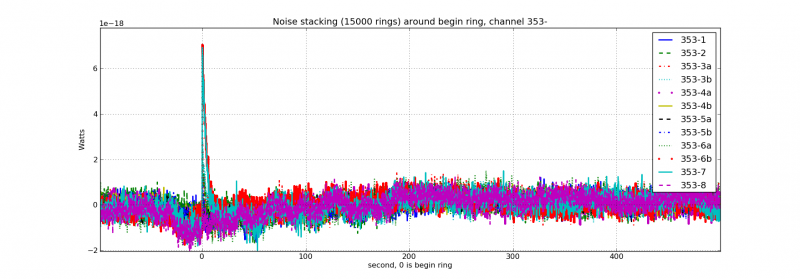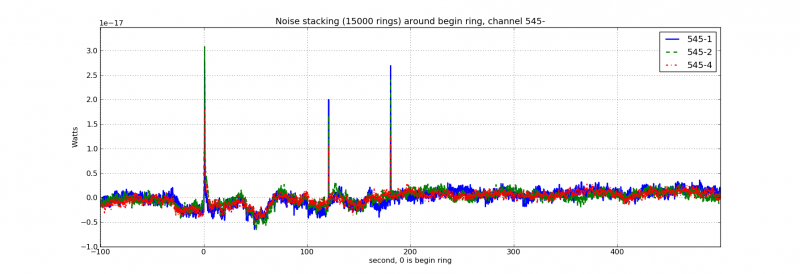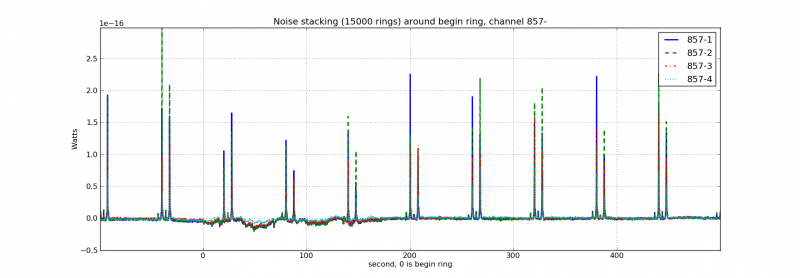Difference between revisions of "DepointingVibrations"
| (4 intermediate revisions by the same user not shown) | |||
| Line 1: | Line 1: | ||
Microphonic noise is a potential concern for bolometric detectors. | Microphonic noise is a potential concern for bolometric detectors. | ||
| − | We check for microphonic contamination by coadding 15000 rings, each referenced in time around the first thruster firing before the ring. | + | We check for microphonic contamination in each detector by coadding 15000 rings, each referenced in time around the first thruster firing before the ring. The results are shown for each frequency set in the six following figures. |
| + | |||
| + | [[File:NoiseStackChannel100Large.png|800px|100 GHz Ring Stack]] | ||
| + | |||
[[File:NoiseStackChannel143Large.png|800px|143 GHz Ring Stack]] | [[File:NoiseStackChannel143Large.png|800px|143 GHz Ring Stack]] | ||
| + | |||
| + | |||
| + | [[File:NoiseStackChannel217Large.png|800px|217 GHz Ring Stack]] | ||
| + | |||
| + | |||
| + | [[File:NoiseStackChannel353Large.png|800px|353 GHz Ring Stack]] | ||
| + | |||
| + | |||
| + | [[File:NoiseStackChannel545Large.png|800px|545 GHz Ring Stack]] | ||
| + | |||
| + | |||
| + | [[File:NoiseStackChannel857Large.png|800px|857 GHz Ring Stack]] | ||
| + | |||
| + | Significant signal is seen in many detectors at zero seconds, which is when the first thruster is fired to make a ring change. At 545 GHz, signals are also seen at 120 and 180 seconds, the times of the second and third (or last) thruster firing for each change. As four minutes of data are always flaged after the beginning of any pointing change, none of these effects will be seen in the data. | ||
| + | |||
| + | The 857 GHz signal is dominated by residual Galactic signal. | ||
Latest revision as of 11:56, 8 August 2012
Microphonic noise is a potential concern for bolometric detectors.
We check for microphonic contamination in each detector by coadding 15000 rings, each referenced in time around the first thruster firing before the ring. The results are shown for each frequency set in the six following figures.
Significant signal is seen in many detectors at zero seconds, which is when the first thruster is fired to make a ring change. At 545 GHz, signals are also seen at 120 and 180 seconds, the times of the second and third (or last) thruster firing for each change. As four minutes of data are always flaged after the beginning of any pointing change, none of these effects will be seen in the data.
The 857 GHz signal is dominated by residual Galactic signal.
